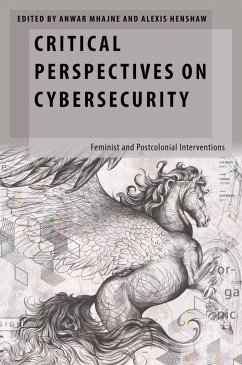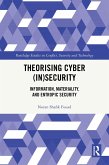Traditional notions of national security have generally dominated cybersecurity debates, but the response to emerging cybersecurity issues should not merely focus on the militarization of cyberspace. Weaponizing a space heavily populated by civilians has enormous implications for human rights. Yet, cybersecurity studies in international relations have largely overlooked the impact of cybersecurity policies on individuals and communities--including the consequences of surveillance, data overcollection, cybercrime, and cyberbullying.
Critical Perspectives on Cybersecurity offers a new approach to understanding cybersecurity in international relations. As a counterpoint to existing work, which focuses largely on the security of states, private actors, and infrastructure, chapter authors examine how women and communities across the Global South understand "cybersecurity," including what threats and forms of resistance are most important to them. They make the case that policies need to consider individual human rights by putting people's empowerment and wellbeing at their center. Drawing on feminist and postcolonial theory, the chapters also cover issues that challenge conventional notions of cybersecurity, including disinformation, gender-based violence online, and technology as a neocolonial force. Bringing together contributions from a globally diverse range of authors, Anwar Mhajne and Alexis Henshaw provide a human security perspective on cybersecurity that pays attention to the interplay of race, ethnicity, gender, class, and other social hierarchies, especially regarding cybersecurity in the Global South.
Dieser Download kann aus rechtlichen Gründen nur mit Rechnungsadresse in A, B, BG, CY, CZ, D, DK, EW, E, FIN, F, GR, HR, H, IRL, I, LT, L, LR, M, NL, PL, P, R, S, SLO, SK ausgeliefert werden.









